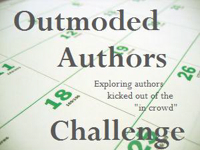
Throughout the novel there are contrasts between the rich ruling classes and the peasantry; between life as it was pre-war and the uncertainties and fears that the war is bringing; between the British community in Bucharest and the Rumanians; and between Guy and Harriet as they both adjust to married life, with Harriet making most of the adjustments.
It’s a richly descriptive book of both characters and place. Olivia Manning vividly depicts pre-war Bucharest. In the following scene Guy and Harriet hire a coach to take them out one evening :
“When the trasura stopped at Pavel’s, one of the largest of the open-air restaurants, there could be heard above the traffic the shrill squeak of a gypsy violin. Within the shrub hedge of the garden all was uproar.
The place was crowded. The silver-gilt glow from the globes set in the trees lit in detail the wrinkled tree-trunks, the pebbled ground, and blanched the faces of the dinners, that damp with excitement of food, gazed about them with deranged looks, demanding to be served. Some rapped with knives on wine-glasses, some clapped their hands, some made kissing noises at the waiters, whilst others clutched at every passing coat-tail crying: “Domnule, domnule!” for in this country even the meanest was addressed as ‘lord’.”
Of all the characters Harriet and Prince Yakimov, or as he refers to himself ‘poor old Yaki’, a Russian émigré, half Irish and half White Russian, are the most memorable to me. Harriet is finding it difficult living in a foreign country amongst people she doesn’t know, feeling isolated among strangers, both British and Rumanian, jealous of Guy’s friends and his relationship with Sophie (who had hoped he would marry her) and his allegiance to other people seemingly over his marriage.
Harriet eventually realises that Guy is “a comfortable-looking man of an unharming largeness of body and mind. His size gave her an illusion of security – for it was she was coming to believe, no more than an illusion. He was one of those harbours that prove to be shallow: there was no getting into it. For him, personal relationships were incidental. His fulfilment came from the outside world.”
Yaki, a raconteur and joker, who is said to “have a peculiarly English sense of humour” uses every opportunity to sponge off anyone who will ‘lend’ him money, give him a meal or a bed for the night. He is forever “waiting for m’remittance from m’poor old ma”, promising to repay the loan when it arrives, only to spend it as soon as it does without repaying anyone.
Guy decides to put on a play, Troilus and Cressida, using the students, friends and the “chaps at the Legation” to act the 28 speaking parts. Whilst seeming at first to be over-ambitious and divisive the play is the means of consolidating the Pringles’ relationship and it is a success. However this coincides with fall of Paris and the despondency and fear that this brings. The book ends with the realisation that Rumania will also fall and that the Pringles’ survival depends upon their leaving:
"We’ll get away because we must. The great fortune is life. We must preserve it."
I found the book interesting and informative about the start of the Second World War. It is also an entertaining book working on different levels, exploring the nature of marriage, friendship, patriotism and the attitudes and beliefs of the pre-war period. It’s written in a style that is slightly detached yet energetic and sympathetic. I think I’ll re-read it, as I’m sure there is much that I missed at this first reading. The next book in the trilogy is The Spoilt City. I’ve reserved it at the library and hope it won’t be too long before it arrives.


